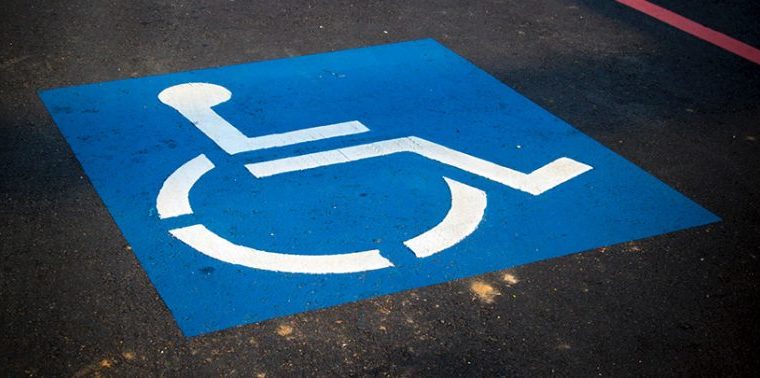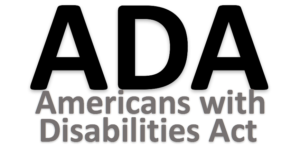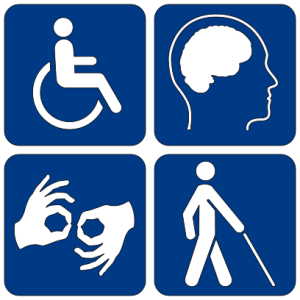Written by Mackenzie Saunders:
The Americans with Disabilities Act (ADA) was a landmark piece of legislation passed in 1990 and amended in 2010. The ADA was the first piece of federal law that said “Hey! Discriminating against people with disabilities is bad. We shouldn’t do that.” We have the ADA to thank for anti-discrimination policies in the workplace; ramps, accessible restrooms, and elevators in buildings; and the general inclusion of people with disabilities in modern day life.
But that doesn’t mean the ADA is perfect. In fact, the ADA has several fundamental flaws that limit its capacity to help people with disabilities — but nobody likes to talk about these flaws, because the ADA has been such a revolutionary law in our country. Sure, the ADA made major waves in the United States and ushered in the beginning of true disability inclusion in this nation, but until the ADA is given some substantial modifications, we have a long way to go before the ADA really does what it’s supposed to: protect people with disabilities from discrimination in all aspects of life.
Here are the two main reasons why the ADA needs to change:
1) Modern day technology, like ride-sharing apps, aren’t included under the ADA.
I’m sure that in 1990, nobody would have predicted the rise of Uber, or Lyft, or the seemingly hundreds of e-scooter companies that have littered our nation’s sidewalks with electric scooters. But our inability to foresee the future doesn’t excuse the exemption of ride-sharing companies from ADA standards. Do Uber drivers have the legal right to refuse a ride to a passenger with a disability? Under the ADA… they technically do.
The ADA does not explicitly mention that ride-sharing companies like Uber and Lyft have to be accessible for people with disabilities, because these companies didn’t exist when the ADA was made in 1990 or amended in 2010. This leads to widespread inaccessibility and confusion regarding ride-sharing apps in the disability community. Ride-sharing accessibility isn’t regulated under the ADA, proving that the ADA is outdated and, at the very least, needs to be amended to include modern businesses and technology.
2) Under the ADA, people with disabilities have to experience barriers to access before the barriers can be remedied.
The ADA is a reactionary, and not preventative, piece of legislation. There are two main enforcement methods of the ADA: Department of Justice (DOJ) investigations, and personal and state lawsuits. Through the first method, a person with a disability has to file a formal complaint through the DOJ detailing a barrier to access that they have experienced. The DOJ reviews the complaint and decides whether to move to a formal investigation. Through the second enforcement method, an individual with a disability— or an individual’s state government— has the legal right to sue an entity that violates the ADA.
Both of these enforcement methods are reactionary, not preventative. The ADA reacts to accessibility barriers by remediating them once a person with a disability experiences them, rather than preventing accessibility barriers from taking place to begin with. This means that, under the ADA, people with disabilities are forced to experience barriers to access before the barriers to access can even be fixed.
For the ADA to truly prevent discrimination against people with disabilities, the legislation must be reactionary and preventative. The ADA must be amended to include enforcement methods that don’t just react to barriers, but prevent them, such as implementing widespread, in-depth building accessibility standards that are continually checked and managed by building code experts. People with disabilities shouldn’t have to experience injustices before the injustices can be solved. Instead, the injustices should just be prevented to begin with.
Don’t get me wrong; I’m grateful for the ADA.
I am so grateful for the disability rights trailblazers that came before me and spearheaded the passage of the ADA. I couldn’t be where I am today — about to graduate from university, living safely and comfortably in my accessible on-campus apartment — without the ADA. The ADA is a truly revolutionary piece of legislation that was a great first step towards protecting disability rights in the United States. But that’s what the ADA is: a great first step. So much more needs to be done to truly protect all people with disabilities from discrimination and exclusion across the nation.
The ADA is great, but in a lot of ways, it really, really needs to change.


